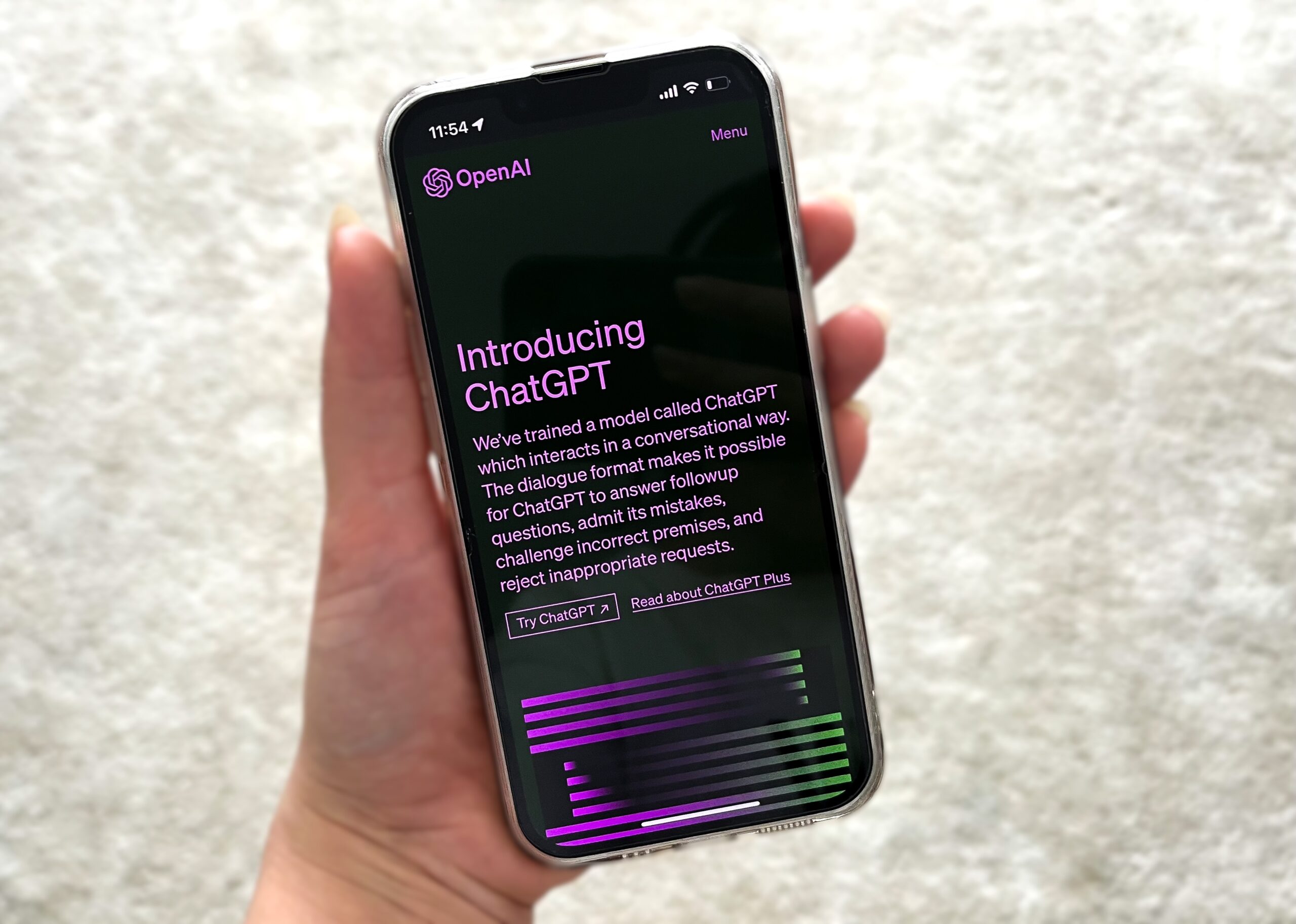ChatGPT: An AI that facilitates realistic conversations
Dr. Steve Szigeti shares his thoughts on ChatGPT and AI applications, how they are changing learning processes, and redefining the workplace.
Ever since its release on November 30, 2022, ChatGPT has been the highlight of many conversations, both in the academe and the workplace. In simple terms, ChatGPT is an interactive platform that draws upon information from its database to answer its users’ questions. While its provided answer may or may not be correct, ChatGPT always has a response, and it aims to simulate real-life conversations.
In conversation with The Medium, Dr. Steve Szigeti, an assistant professor at the Institute of Communication, Culture, Information and Technology, explains that ChatGPT generates answers using prediction models. He compares the system of ChatGPT to that of a black box—a system that generates outputs based on the inputs without revealing how it functions. Dr. Szigeti states, “It takes into account each of the different words and structures its answer accordingly.” The responses are naturally written, and Dr. Szigeti explains that: “When we interact with these systems, it seems that we are talking to humans.”
ChatGPT is known to utilize natural language processing, which Dr. Szigeti describes as the ability to understand the naturally written and spoken language that humans use. It is a valuable component of artificial intelligence (AI) as it allows computers to understand text and speech.
With the increasing popularity of ChatGPT, many students are relying on the platform for assistance on their assignments. Drawing from his experience in teaching CCT110: Rhetoric and Media, a class with around 700 students, Dr. Szigeti believes it is beneficial to address the use of ChatGPT in an academic setting. Considering that the International Baccalaureate has now allowed the use of ChatGPT in its program, he predicts that universities will eventually follow suit.
Allowing students to use a platform already available for everyone promotes fairness. As such, Dr. Szigeti is exploring ways that ChatGPT can integrate into course assignments. However, he stresses that it is important that students learn what constitutes a strong academic paper, so that they can assess the value and validity of a ChatGPT-generated response.
Currently, at U of T, the use of ChatGPT for assignments is permitted by the course instructor’s discretion. However, questions arise regarding whether professors and teaching assistants can tell if students used ChatGPT to write their papers or not. Given that ChatGPT combines prediction models with natural language processing to create the most human-sounding responses possible, Dr. Szigeti believes that it can be hard to tell. This is worsened by U of T’s restriction on the use of ChatGPT detection tools—a policy that emerged to protect the work submitted by students. In principle, students own their work, and professors cannot submit their work to third parties without students’ consent. While professors cannot easily identify ChatGPT-generated work, this does not mean students are safe to freely use the platform—it sometimes makes up references.
Dr. Szigeti believes that educators should rethink their methods for evaluating student work. Integrating ChatGPT into the learning process is the best way to safeguard academic integrity while reaping the platform’s benefits. He believes that while the spotlight is on ChatGPT right now, there are other AI applications used daily at educational institutions and in the workplace. An example is the facial recognition tool on smartphones. AI is also frequently used to visualize data for analysis and planning.
With all these technological advancements, one can expect that ChatGPT, alongside many other AI systems, will be used across various professions. Integrating ChatGPT in the workplace will affect workers as well, and Dr. Szigeti believes that the nature of work will change. For instance, instead of having employees that code, employees will now supervise the AI as it codes and address any issues that may arise.
There are many opportunities that AI opens to academia and the workplace, coming with certain challenges to navigate as well. In essence, the rising popularity of ChatGPT, and AI as a whole, may revolutionize the world.
Associate News Editor (Volume 50) — Karine is currently completing her bachelor’s degree specializing in Digital Enterprise Management at UTM. She has been involved with The Medium since 2022 as a contributor. She hopes to contribute to society's efforts to provide authentic and factual journalistic media to educate her readers during her time at The Medium. Her goal is to take her interest in ongoing research within the business and technology field and explore ways to share it with others through this platform. In her spare time, she enjoys going on walks, FaceTiming her family, and painting sunsets with her friends. Moreover, she passionately pursues the chase of the Aurora Borealis, seeking to experience and capture the breathtaking beauty of these natural light displays. You can connect with her on LinkedIn.


